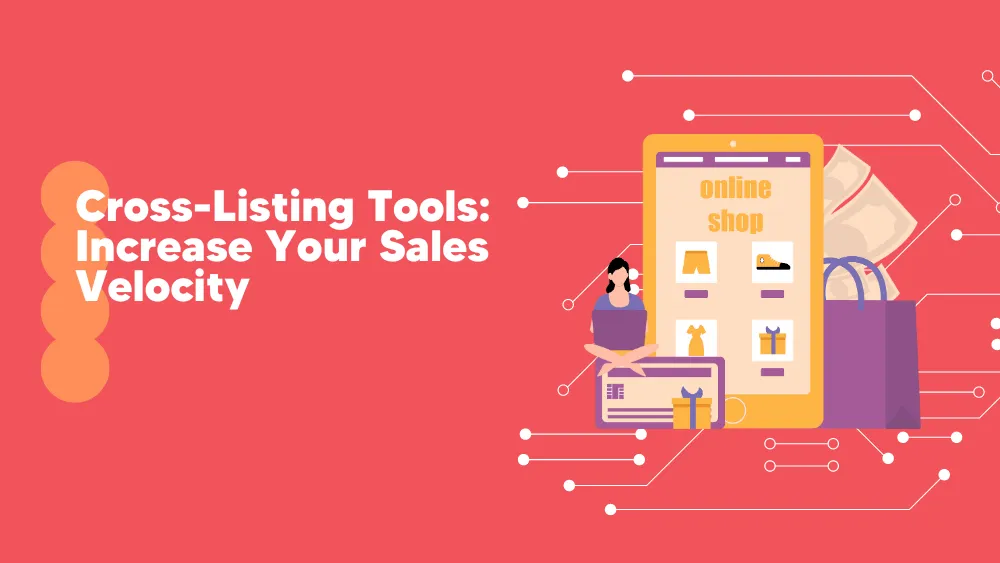E-commerce has evolved to be a $6 trillion industry, with over 33% of the world’s population shopping online. By 2027, it is expected to reach an astounding $8 trillion.
Selecting the appropriate platform is more important than ever for Internet business owners hoping to increase client satisfaction and close every sale.
ThriveCart vs Shopify frequently appears as a crucial contrast in this search. Although both systems meet e-commerce needs, they each have advantages. Shopify provides a comprehensive solution for creating and running an online store, while ThriveCart is great at optimizing and converting checkout.
This article will fully compare the main features, advantages, and best use cases of ThriveCart vs Shopify. This guide will assist you with choosing the platform that best suits your business objectives, whether you’re working to create a comprehensive online store or refine your checkout process.
What is ThriveCart?
ThriveCart is a dedicated checkout and cart optimization solution that increases conversions and reduces cart abandonment. Its intuitive drag-and-drop interface speeds up the checkout process and provides features like order bumps to raise average order values and one-click upsells and downsells. ThriveCart affiliate management is also included for simple affiliate program creation and administration, which aids in business growth.

ThriveCart Learn offers entrepreneurs wishing to sell both items and courses an appealing, all-inclusive solution by facilitating the smooth hosting and administration of online courses and educational content for digital product creators.
What is Shopify?
Shopify e-commerce is a full-featured platform designed to make it easy for companies to set up and run online stores. It is well-known for its user-friendly interface and extensive feature set. Shopify lets users create personalized storefronts, manage inventory, and incorporate necessary shipping and payment options—all on one platform.
When using the Shopify online store features, business owners can use a variety of tools for product display, SEO optimization, and customer interaction. Shopify’s vast app marketplace expands its capabilities even more, enabling vendors to customize their stores to meet certain requirements, ranging from customer service to marketing and analytics.
Shopify offers companies looking for a reliable, scalable solution a strong platform for expanding their online presence and managing all aspects of e-commerce.
ThriveCart vs Shopify Feature Comparison
When comparing ThriveCart and Shopify, it’s important to consider how each platform manages similar functions, frequently using different strategies to satisfy various business requirements.
Product and Cart Management
- ThriveCart‘s design places a strong emphasis on checkout optimization, which helps companies boost conversions and lower cart abandonment. For companies wishing to streamline the purchasing process, its simple cart system is perfect.
- Shopify is a flexible solution for building and managing a full Shopify online store since it offers a comprehensive e-commerce experience that includes full-scale inventory and product management.
Digital Product Support
- ThriveCart includes ThriveCart Learn, allowing users to host and manage online courses, which appeals to educators and digital product creators looking to expand their offerings.
- Shopify supports digital product sales, such as downloadable files, digital art, videos, and audio clips, which are often available for immediate download post-purchase. However, course creation typically requires third-party apps, making ThriveCart more accessible for businesses focused on course sales.
Payment Gateways and Fees
- ThriveCart keeps it simple by integrating directly with PayPal and Stripe, and it doesn’t charge extra transaction fees, making it a budget-friendly choice for straightforward payment processing.
- Shopify integrates with major payment processors, including credit cards, Apple Pay, and Google Pay, and supports over 100 local currencies. However, Shopify charges additional transaction fees if it does not use its own gateway.
Customization Options
- ThriveCart focuses on personalizing the checkout page so that companies can increase sales without having to develop a whole website. It offers conversion-focused features like order bumps, upsells, and editable templates,
- Shopify‘s platform lets consumers establish an integrated and eye-catching Shopify e-commerce site by offering a large selection of customisable themes for creating a fully branded storefront.
Affiliate Management
- ThriveCart offers built-in affiliate tools, making it simple to launch and manage an affiliate program directly from the platform. Its built-in affiliate management is ideal for those looking to incorporate affiliates without added complexity.
- Shopify requires third-party integrations for affiliate capabilities, which adds flexibility but may involve extra costs and setup time.
ThriveCart Unique Features
-
ThriveCart Learn
ThriveCart offers ThriveCart Learn, a built-in tool for hosting courses and digital products. This feature eliminates the need for external apps when selling educational content. It also includes flexible drip-feeding options, unlimited courses, and an easy setup for creators focused on digital learning.
-
One-Time Pricing Option
Unlike most e-commerce platforms, ThriveCart provides a ThriveCart lifetime deal, which allows users to pay a single fee for lifetime access. This can be highly appealing for those looking to avoid recurring subscription costs.
-
Advanced Checkout Customization
ThriveCart is built to optimize the checkout experience with tools for upsells, downsells, and order bumps directly on the checkout page. Paired with ThriveCart affiliate management, these checkout-focused features help businesses boost conversions by maximizing the value of each transaction.
ThriveCart’s customizable templates and drag-and-drop editor allow users to design a unique, high-converting checkout experience tailored to their brand.
Shopify e-commerce Unique Features
-
Storefront Customization
Shopify offers extensive storefront customization with a wide range of mobile-friendly designs. If you alter these themes to fit your brand, your Shopify online store will seem clean and unique. Further customization is also possible using Shopify’s app ecosystem, which offers integrations for everything from professional sales tools to design features.
-
Inventory and Order Management
The comprehensive Shopify inventory management tools make it simple to keep track on stock levels, handle product variations, and speed up order fulfillment. Businesses with larger catalogs would particularly benefit from these features, which facilitate effective management of complex product assortments and back-end logistics.
-
Abandoned Cart Recovery
To increase sales and re-engage potential customers, Shopify features an automatic abandoned cart recovery service that contacts customers who left things unpurchased. This tool encourages customers to finish their purchases by offering discounts and tailored reminders.
ThriveCart Products and Tools
-
Checkout and Sales Funnel Tools
ThriveCart is designed with a focus on high-converting checkouts and efficient sales funnels. With customizable templates and a drag-and-drop editor, you can build checkout pages tailored to your brand, adding elements like testimonials, images, and personalized messages.
ThriveCart’s sales funnel tools support upsells, downsells, and “bump” offers to increase the average transaction value, guiding customers smoothly through each step.
-
Affiliate Management Program
ThriveCart’s integrated ThriveCart affiliate management tool simplifies the process of setting up and running affiliate programs. Without requiring third-party connectors, businesses may authorize affiliates, create unique revenue arrangements, and automate distribution. Through affiliate relationships, this tool enables users to increase their reach and sales potential while measuring and optimizing affiliate performance with ease.
-
Digital Course Platform (ThriveCart Learn)
ThriveCart Learn is a digital course hosting platform included in the ThriveCart lifetime deal, making it accessible for creators and educators selling courses or memberships. This feature allows users to structure their content into modules and lessons, apply drip-feeding options, and manage student access—all without needing additional course software.
The integration keeps everything centralized, greatly simplifying course sales and content delivery for a seamless user experience.
Shopify Products and Tools
-
Online Store Builder
With editable themes and simple drag-and-drop features, the Shopify online store builder offers all the tools to construct a complete e-commerce website. The builder’s selection of professional templates helps you match the storefront’s appearance and feel to your brand. This design flexibility is crucial for establishing a unified and aesthetically pleasing Shopify online store.
-
Inventory Management
With Shopify’s inventory management features, users may monitor stock levels, control product variants, and improve order delivery. Shopify makes stock control easier with its support for larger product catalogs and partnerships with shipping services, making it a great option for companies that sell a wide range of goods.
-
Marketing and Sales Features
Shopify provides several built-in marketing and sales capabilities, such as social network integrations, SEO optimization, and a powerful abandoned cart recovery feature that helps customers finish their orders. Furthermore, Shopify’s app store offers a range of marketing tools for loyalty programs and email campaigns, enabling customers to create successful Shopify e-commerce plans.
ThriveCart Pricing vs. Shopify Pricing
The table below compares the main pricing structures for ThriveCart vs Shopify, highlighting their differences in payment models and specific features.
Key Differences- ThriveCart offers a one-time payment model, eliminating recurring subscription fees. However, users are still subject to fees from payment processors like PayPal or Stripe.
- Shopify operates on a subscription-based model with monthly fees. Transaction fees vary depending on the plan and whether Shopify Payments is used.
- The Shopify Starter plan is designed for social selling and does not provide a full online store.
- Shopify Plus is tailored for large enterprises. It offers advanced features and support, and pricing starts at $2,300 per month.
ThriveCart Use Cases
-
Digital Product Sellers
ThriveCart is the best option for businesses selling digital goods like software, eBooks, or downloadable material. Its fully customizable checkout pages make building conversion-optimized funnels for one-time sales of digital goods easy.
-
Course Creators and Educators
ThriveCart Learn streamlines the process of providing educational content by enabling instructors to host, sell, and administer online courses directly on the platform. Those looking for a single location to handle subscriptions or online courses without requiring further integrations will find ThriveCart Learn very appealing.
-
Businesses Seeking One-Time Payment Options
ThriveCart’s lifetime deal option appeals to businesses that prefer an upfront investment over ongoing subscription fees. This payment model benefits businesses looking to avoid monthly costs while maintaining access to all ThriveCart features, including the advanced ThriveCart affiliate management tools.
Shopify Use Cases
-
Traditional Retailers and Physical Product Sellers
Thanks to its robust inventory management, shipping features, and various integrations, Shopify is an excellent choice for businesses that sell physical products. It simplifies the sales process for both small businesses and larger, more complex stores by offering solutions for order fulfillment, stock tracking, and smooth shipping.
Because of these capabilities, Shopify e-commerce has become the go-to platform for sellers who want to manage their inventory and build a strong online presence effectively.
-
Growing E-commerce Brands
Shopify’s range of plans, from Shopify Lite to Advanced choices, enable varying stages of business growth and provide scalability for firms growing their online presence. As Shopify’s online store grows, e-commerce brands can easily add staff accounts, manage more products, and broaden their reach thanks to Shopify’s flexibility.
-
Subscription-Based Businesses
Thanks to Shopify’s wide range of app connections, companies may quickly incorporate membership services and subscription-based sales into their stores. Businesses that offer subscription boxes, recurring payments, or other membership-based items will find this flexibility very helpful, making it a good option for those with ongoing, subscription-based business models.
Conclusion for ThriveCart vs Shopify
In summary, when comparing ThriveCart vs Shopify, it’s clear that each platform serves distinct purposes.
Course developers and digital product merchants are ThriveCart’s ideal customers. It offers the special advantage of a one-time payment option and enhanced checkout experiences. Additionally, users may efficiently boost revenue through affiliate partnerships thanks to its tools for managing the ThriveCart affiliate program.
On the other hand, Shopify is best suited for companies specializing in Shopify e-commerce. It is the ideal option for people selling physical things online since it offers extensive inventory management, store administration, and product delivery features.
Whether you want to increase sales of digital products or require a strong e-commerce platform to handle a larger variety of physical products, your choice should ultimately be determined by your particular needs.








